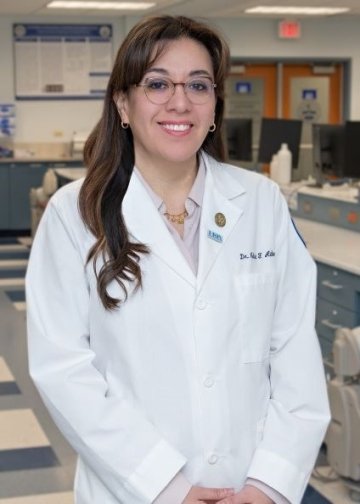
"The most rewarding parts of being a member of the Midwestern University faculty over the past 29 years have been to have the privilege of being part of a team that teaches pharmacology to students across many colleges on the Downers Grove Campus."
Years Teaching at Midwestern University:
I have been a faculty member in the Pharmacology Department, Chicago College of Osteopathic Medicine, and the College of Graduate Studies on the Downers Grove Campus for 29 years, since 1993.
Research Interests:
For many years, I have focused my research on the immunopharmacology of marine-derived chemicals, more specifically:
- Marine pharmacology: Marine natural products as pharmacological agents to modulate the generation of inflammatory and neurotoxic mediators released by microglia (brain macrophages). This work led me to the first two patents issued to a Midwestern University faculty member in both 2002 and 2003.
- Marine toxicology: Marine and freshwater cyanobacterial lipopolysaccharides as activators of the immune system, in particular of microglia, as well as other immune cells.
What is the most rewarding part of being a member of the Midwestern University faculty?
The most rewarding parts of being a member of the Midwestern University faculty over the past 29 years have been to have the privilege of being part of a team that teaches pharmacology to students across many colleges on the Downers Grove Campus, as well as to conduct independent research with students on the immunopharmacology of marine-derived chemicals. I also have really enjoyed serving the University as Chair and member of several committees over the years, participating as Midwestern University Faculty Representative to the Faculty Advisory Committee, Illinois Board of Higher Education from 2013-2016. Particularly significant in my time as a faculty member was when I was recognized with the Littlejohn Award in 2011.
How do you engage students in the learning process?
When teaching, I engage students by emphasizing the principles of the One Health Initiative as a significant component of healthcare. I also highlight the importance of pharmacology in their professional careers, as well as the resources that are available to them at the Midwestern University Library for lifelong learning.
What lessons would you like students to take with them in their professional careers?
In my personal view, students should know how to find and access the most current pharmacology and pharmaceutical information about drugs, as this will help them during their professional careers. I therefore highlight in class both pharmacology and pharmaceutically relevant websites available on the Midwestern University Library website.
Why is it important for Midwestern University to celebrate Hispanic Heritage Month?
In 2020, the United States Census Bureau reported that there are over 62.1 million Hispanic individuals in this country. Since the 2010 Census, the Hispanic population in the United States has increased by 23%.
It is therefore important that Midwestern University faculty, staff, and students familiarize themselves with Hispanic culture and health issues, so they are prepared to promote the health and well-being of the growing U.S. Hispanic community, which experiences significant health disparities. As a Midwestern University faculty member, I have helped students familiarize themselves with relevant information by teaching a Medical Spanish elective for many years. Through this, I helped create a Medical Spanish folder in the Midwestern University Library website, with resources that can help both campuses as well as support the Student Hispanic Healthcare Association in Downers Grove.
Furthermore, as a Chicago College of Osteopathic Medicine International Student Advisor, I have stimulated student participation in global immersion programs, volunteer work, and international rotations by hosting annual seminars, supporting the Chicago College of Osteopathic Medicine International Club, and creating an International Rotation folder on the Midwestern University Library website that consolidates presentations from the annual Midwestern University/DOCARE mission to Guatemala, which has been going on for more than 20 years, along with student international rotation presentations.
What do you want people to know about your culture and heritage?
It is important to be aware that the 2020 U. S. Census revealed that there is a growing racial diversity among Hispanics. Although nearly 62% of the U.S. Hispanic population is of Mexican origin, the other major Hispanic groups in the U.S. are Puerto Rican (9.7%), Cuban (3.9%), Salvadoran (3.9%), Dominican (3.4%), and Guatemalan (2.7%). However, there are other minor groups of Hispanics in the U.S. such as Argentinians, like me. I was born in Argentina, and my grandparents immigrated from Germany (Mayer is a German surname). As a Midwestern University faculty member, I believe I have provided a cultural blend of Argentinian and German culture. To further expose yourself to Hispanic culture, I recommend trying local restaurants and watching tango videos online. You can always email me for additional advice as well at: amayer@midwestern.edu.



